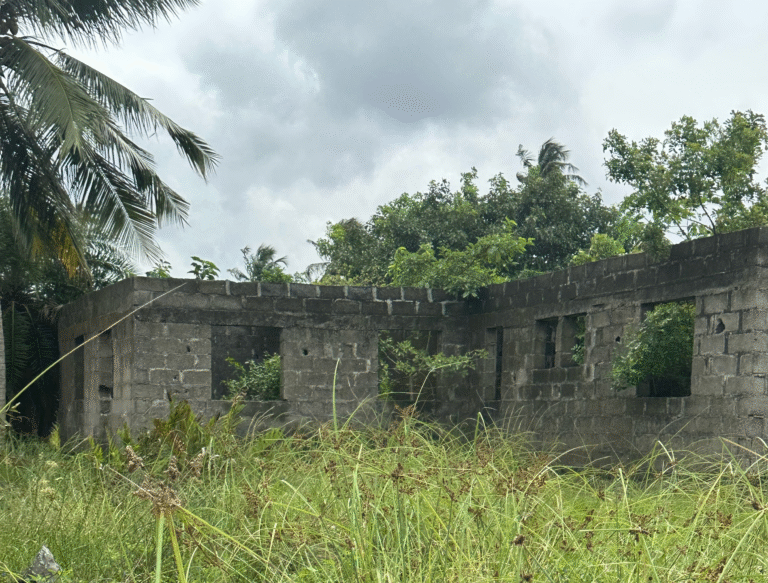When local authorities fail to provide functional health facilities, the consequences are dire for communities, particularly for nursing mothers and children. In this investigation, Bilkis Abdulraheem, examines the state of healthcare delivery in three riverine communities in Lagos. Her findings reveal a pattern of neglect, unfulfilled government promises, and the startling case of a dispensary centre officially documented as existing but absent on the ground.
The Ibrahim’s Experience
Muibat Ibrahim’s two-and-a-half-year-old child had been stooling since midnight. She had tried several home remedies without success. Desperate and unable to wait until morning, she and her husband set out from their home in Irede Onigbanko, one of the riverine communities under Oriade Local Council Development Area of Lagos State, to Ikaare, about three kilometres away, in search of medical care.
The first aid treatment given there seemed to stabilise the child, and the family returned home hoping for a peaceful night’s rest. But by 6:30 a.m., Mrs Ibrahim discovered her son was motionless. In panic, she and her husband boarded a boat to Ojo, then took a motorcycle to the hospital. On arrival, doctors confirmed the worst: the child was dead. While her husband stood in shock, Mrs Ibrahim wept inconsolably.
Many believed the little boy’s death could have been prevented. With no public health centre nearby, families in these communities are forced to lose precious time waiting for daylight to cross by canoe or boat to the mainland and then continue their journey by commercial motorcycle to the hospital.
Although the incident happened years ago, Mrs Ibrahim still lives with the pain, which she blames on the absence of a public health centre in her community, Irede, and in neighbouring Ikaare, Iyagbe, and Ibasa.
“…if any resident is sick or a pregnant woman wants to deliver, they either go to Baba Ruka’s trado-medical clinic in Ibasa community or take a boat to Ojo. If it is midnight, they will have to charter a boat which costs between N10,000 to N15,000,” She explained.
Mrs Ibrahim’s experience is not unique to her. There is hardly any family in the riverine communities who do not have a story to tell about how much a family member, neighbour or friend suffered due to the absence of government primary health facilities in their areas.
Lack of primary healthcare centres in Irede Onigbanko, Iyagbe, Ikaare, and Ibasa riverine communities compelled the residents to resort to the help of a trado-medical clinic, auxiliary nurses or cross to Ojo or satellite town if they must use a medical health facility.
A study by Abdulraheem et al., University of Ilorin, notes that Nigeria’s primary health care (PHC) goal of “health for all” by 2000 remains unachieved, with little hope of realisation soon. PHC delivery, largely a local government responsibility under the national health policy, was meant to bring services closer to the grassroots but has failed in many communities.
Similarly, Ojonemi and Okolie of the University of Nigeria, Nsukka, highlight that high morbidity and maternal mortality persist due to poor PHC services, dilapidated facilities, lack of drugs and equipment, and ineffective implementation, despite the establishment of several PHC centres.
The International Journal of Innovative Science and Research Technology identifies the “three delays”, seeking care, reaching a facility, and receiving treatment, as major contributors to Nigeria’s alarming maternal deaths.
According to a 2023 WHO report, Nigeria ranks second globally in maternal mortality, with 1,047 deaths per 100,000 live births.
This investigation reveals that, beyond the government’s broken promises to the riverine communities of Irede Onigbanko, Ikaare, and Ibasa, even the health post, officially listed as functional, is in fact non-operational.
Similarly, a boat ambulance announced by the Commissioner of Health about two years ago at Ibeshe community, touted as a lifeline to bridge health care gaps, is not in operation. Residents told this reporter they had never seen such a boat, let alone used it.
Even with a donated land in Ibasa, the promised facility by the lawmaker representing Amuwo Odofin Constituency II at the Lagos State Assembly, Rauf Suleiman in 2020 remain unbuilt, leaving the people at the mercy of trado-medical clinic, auxiliary nurses, unless they cross to Ojo or satellite town if they must use a medical health facility despite Lagos State generating over ₦1.3 trillion in internally generated revenue (IGR) in 2024, a 45 per cent rise from ₦895 billion in 2023, and ₦333 billion as of May 2024 according to the Commissioner for Finance, Abayomi Oluyomi.
More “heart breaking” reports
For residents of Irede, the cost of living without a health facility is measured in painful memories. In 2022, when the six-year-old son of Jamiu Qodir fell ill with what he suspected was malaria, the family had nowhere to turn. They fought the fever at home with improvised remedies, but by the third day, the boy died.
Years earlier, a cholera outbreak swept through the same community, and according to Aishat Fatai, another indigene, about ten residents lost their lives. Ms Fatai believes the deaths could have been prevented if timely healthcare services were available.
Irede Ghost Dispensary
Mrs Fatai, who has some knowledge of traditional midwifery from her time living with a traditional birth attendant before relocating to Irede, recalled that the community once had a dispensary built in the 1970s during the Lateef Jakande administration.
Located along the boundary of Irede and Ikaare, the facility was meant to serve residents of both communities but remained largely non-functional. Some years ago, it was demolished with assurances from the government that a primary healthcare centre would be built in its place. However, the promise is yet to be fulfilled.
Another resident, Yunusa Ibrahim, a carpenter who once worked on the abandoned building, recalled that the contractor in charge had come from Badagry, but he has since lost contact with him. He explained that the project has been left unattended for so long that he can no longer remember the exact year construction began. The building, he noted, was abandoned at the lintel stage.
The news on the demolished dispensary was reported by Vanguard newspaper’s Good Health Weekly, 27 February, 2018, edition, tagged “Abandoned PHC: We are neglected, Lagos communities cry out.”
The paper wrote that the dispensary was pulled down by the authorities to give way to the proposed PHC in 2012 during the tenure of Ibrahim Sanusi’s administration as the chairman of Oriade LCDA. It said that the facility has been left uncompleted and later abandoned since 2013 leaving the residents without accessible healthcare services.
Also Read: INVESTIGATION: Five years after fatal Lagos explosion, encroachers bribe way back to ‘danger zone
Ramota Akionla-Hassan later served as chairperson of Oriade LCDA, which oversees all the three communities. The newly sworn-in chairman is Rasaq Olojede. However, Mrs Akionla-Hassan, like others before her, failed to activate the dream of the communities in providing a PHC centre.
Our reporter tried to interview the immediate past chairperson of the LCDA , Mrs Akinola-Hassan in June, to hear her view but after a few phone calls and messages, her aide said she was not interested in any interview.
At present, Irede Onigbanko does not have a health facility, however, it appeared on the list of Lagos State Primary Healthcare Centres that the community has a health post. Why is it stated on the state government website that the community has a health post when it has none?
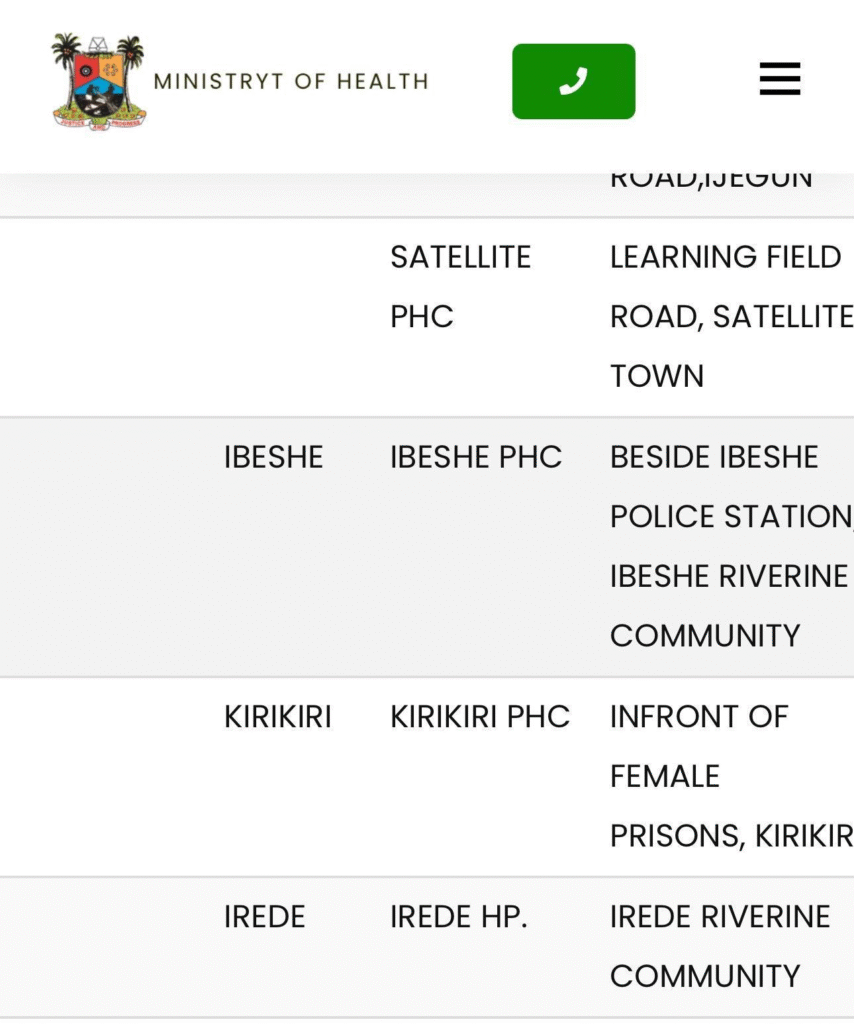
A legal practitioner, Tope Alabi, condemned the misrepresentation of listing a non-existent health post online, describing it as a serious anomaly.
Some of the residents who sighted our reporter taking photographs of the uncompleted proposed health facility thought she was a government official, and they approached her in anger screaming “Enough of marginalisation, we vote every election, yet our community lacks the presence of government. We rely on traditional birth attendants and travel long distances to access healthcare,” they yelled.
The Lagos State Permanent Secretary for the Primary Healthcare Board, Ibrahim Mustapha, a doctor, in an interview was asked whether there were plans to complete the abandoned facility and why official records online indicated that the community already had a health post.
He explained that the board does not rely on online listings but only on physical facilities that can be inspected on the ground, adding that he would need to personally assess the situation.
“The recommended standard is to have at least one PHC in every political ward, a target, which Lagos state is actively working towards,” Mr Mustapha said.
Lagos currently has 329 PHC centres and 393 political wards, which shows that the state is close to the recommended number but must double its efforts in building additional facilities and achieve sustainable development goal three, which is to reduce maternal mortality.
IBASA: Land donated, hopes dashed
Ibasa is another riverine community without a health facility. Although it shares boundaries with Irede and Ikaare, it can only be accessed by canoe or speed boat. Like their neighbours, residents of Ibasa depend largely on traditional medicine practitioners such as Baba Ruka in the community.
Others trek to Ibeshe, where the primary health centre provides only maternal care. Another option is to board a flying boat to the Ijegun-Egba ferry terminal and then continue the journey by tricycle to reach healthcare services.
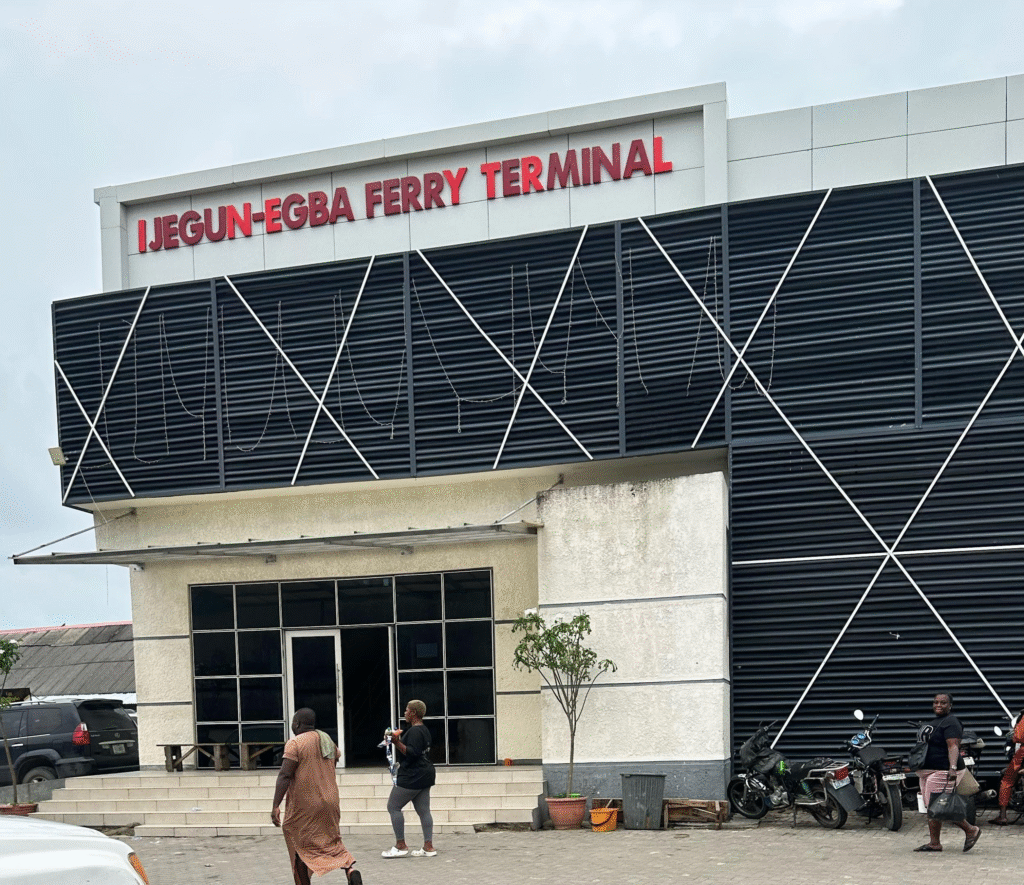
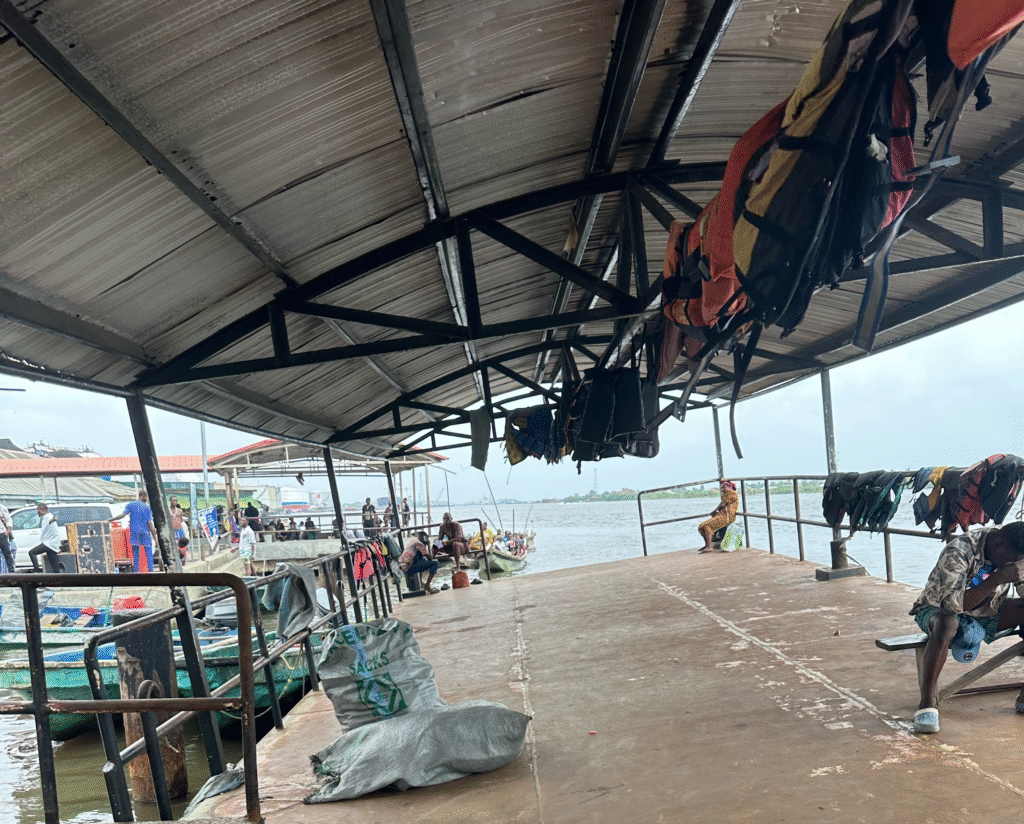
A resident who claimed anonymity said in 2020, during the first tenure of the member representing them in the Lagos State Assembly, Rauf Suleiman, he promised to help facilitate a health facility if the community could donate a piece of land. Subsequently, the community donated two plots of land and submitted the documents to back it up, but nothing has been done on the land.
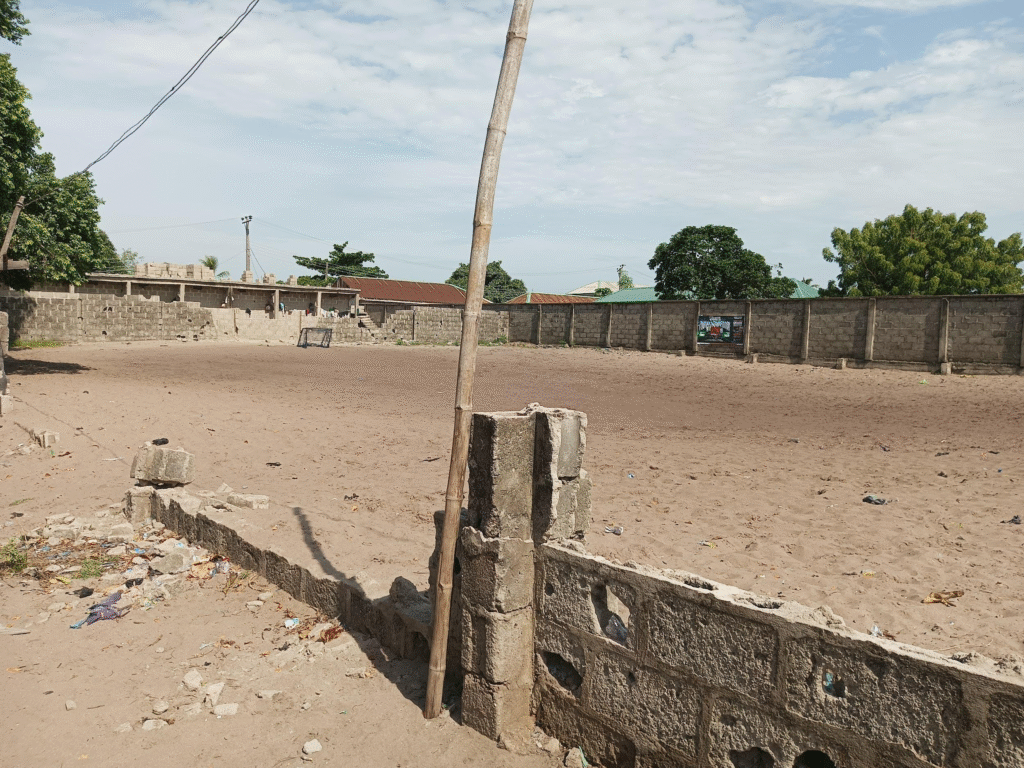
Some of the residents alleged that the lawmaker used his influence to divert the proposed PHC to his own community in Ikaare.
They appealed to the relevant authorities to come to their aid given that Ibasa is a bigger community compared to Irede and Ikaare, with over 10,000 residents including other ethnic groups like Hausas and Igbos.

In a reaction, the lawmaker, Mr Suleiman, admitted that he asked for the land and was issued. He added that however, Ibasa has not been selected for construction of a health facility yet by the government.
Mr Suleiman explained that the government planned to build a bigger facility in the community like a comprehensive hospital.
On the contrary, the Primary Health Care Board Permanent Secretary, Mr Mustapha said a comprehensive PHC has been approved for Ikaare, which is a neighbouring community to Ibasa. He said an on-site assessment would be carried out in Ibasa to determine the type of health facility most suitable for the community provided they do not have any PHC within their ward.
“After the assessment, we can decide if a health post will be suitable considering that the plan for Ikaare is to establish a comprehensive health facility,” he explained. His submission contradicts that of Mr Suleiman who claimed a bigger facility would be built for Ibasa whereas a comprehensive one has been approved for his own community, Ikaare.
The reporter visited the traditional birth attendant popularly called “Baba Ruka” in Ibasa, Maruf Abdul an Alhaji. He said he is registered and one of the appointed taskforce supervisors by the Lagos State Traditional Medicine Board, who practices within the ambit of law.
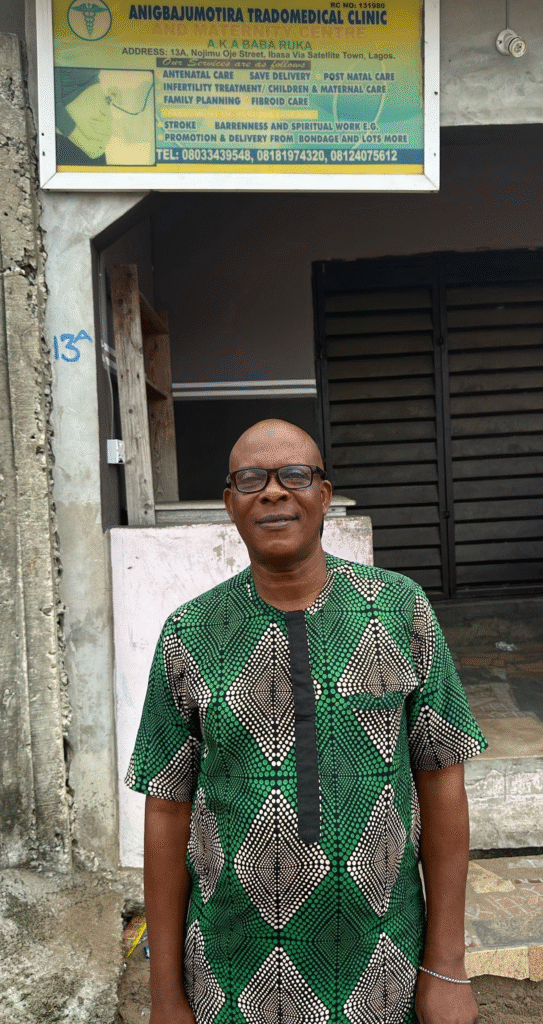
Mr Abdul said his patients cut across Ibasa, Ikaare, Irede and other communities and he has a boat operator he uses in case of emergency in the middle of the night.
A new mum and her baby were sighted in Baba Ruka’s mini “ward”, but our reporter had no permission to “take pictures”. According to Baba Ruka, the woman gave birth overnight.
This report was supported by the Wole Soyinka Centre for Investigative Journalism (WSCIJ) under its Report Women! Female Reporters Leadership Programme (FRLP) with support from the Bill & Melinda Gates Foundation.

